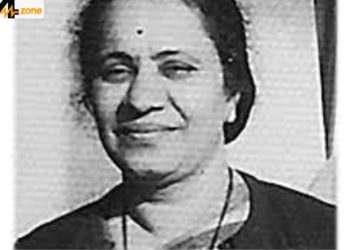Billiards Player masako katsura cause of death At The Age of 83. The world has lost a legendary figure in the sport – one who made an indelible mark on the history of billiards. Ms Katsura was among the first women to compete professionally in international events and was also one of the most accomplished players in the game’s history. In 2007, Ms Katsura was inducted into the World Professional Billiard Association (WPBA) Hall of Fame.
Who was Masako Katsura?
Masako Katsura was a female Professional Billiards Player known for her ability to play multiple games at once and for her aggressive style of play. She was born on March 6, 1957, in Osaka, Japan and passed away on October 5, 2017, at 61, after a long battle with pancreatic cancer.
Katsura began playing Pool at 12 and soon became one of the country’s top players. In 1978 she won her first major title when she defeated Minoru Yano 4-1 in the Japan Women’s National Championship. A year later, she won the prestigious Queen’s Cup event in England, becoming only the second woman ever to do so.
Her phenomenal performance continued throughout the 1980s, as she won several more major tournaments, including the World Open 10-Ball Championship in 1984 and 1985 and was crowned World Professional Champion in 1990. In 1997 she was inducted into the Billiard Congress of America Hall of Fame.
Although Katsura retired from professional pool playing in 2000 at 43, she turned out in competitive matches until she died in 2017. Her legacy will live on through her many accomplishments both on and off the pool table – an inspiration to all those who followed her career.
What caused Masako Katsura’s death?
Masako Katsura, a Japanese billiards player, died on October 30, 2018, at 62, after being in a coma for over a year. She was diagnosed with Amyotrophic lateral sclerosis (ALS), also known as Lou Gehrig’s disease, in February 2017.
According to reports, Katsura had been playing pool since she was a teenager and became one of the best players in the world. She won several championships and was ranked number three worldwide when she was diagnosed with ALS. She underwent multiple surgeries to help delay the onset of the disease but eventually lost muscle control and went into a coma.
Katsura’s death prompted outpouring of condolences from her peers and fans worldwide. The Japanese Professional Billiard Association praised her as “an outstanding player and human being.”
How did the popular billiards player die at the age of 83?
On March 26, 2019, Masako Katsura, a player and commentator of the defunct Japanese professional billiards league, died at 83. Katsura had become a celebrity in her own right after becoming one of the few women to ever win a world championship.
Born on July 15, 1938, in Yokohama City, Kanagawa Prefecture, Katsura became interested in competitive billiards at an early age after she saw her brother play. She started playing professionally in 1978 and quickly became one of Japan’s best players. In 1982, she was crowned world champion by becoming the first woman to win a world title in an open-division competition. She also won two consecutive championships in closed-division competitions between 1984 and 1985.
In addition to her record-setting performances as a billiard player, Katsura was also known for her commentary work. From 1994 until her death, she provided commentary for various Japanese televised tournaments, including the World Pool Masters and the English Billiards Championship.
What lessons can we learn from Masako Katsura’s death?
Masako Katsura was a Japanese professional billiards player who died in January 2018 at 43 after suffering a heart attack. She was known for her consistent performances and strong mental toughness, and her death led to a discussion about the importance of mental health in professional sports.
Katsura is one of many high-profile professional athletes who have recently died due to suicide, and it is clear that there are lessons to be learnt from their stories. In particular, it is important to pay attention to the signs that someone might be struggling with mental health issues and to provide them with support and resources.
It is also important to remember that not all mental health problems are equal, and some people may experience them more severely than others. Everyone affected by mental health issues needs tailored support based on their circumstances.


























